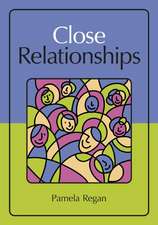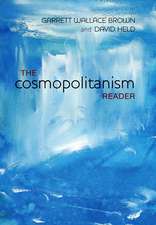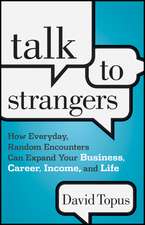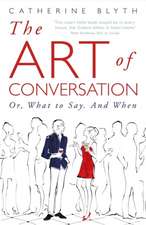Transcending Taboos: A Moral and Psychological Examination of Cyberspace
Autor Garry Young, Monica Whittyen Limba Engleză Paperback – 12 mar 2012
The authors discuss such online areas as:
- ‘Reality’ sites depicting taboo images
- Social networking websites and online chatrooms
- Online dating websites
- Video game content.
This book is ideal for researchers and students of internet psychology, philosophy and social policy, as well as therapists, those interested in computer science, law, media and communication studies
| Toate formatele și edițiile | Preț | Express |
|---|---|---|
| Paperback (1) | 413.33 lei 6-8 săpt. | |
| Taylor & Francis – 12 mar 2012 | 413.33 lei 6-8 săpt. | |
| Hardback (1) | 765.43 lei 6-8 săpt. | |
| Taylor & Francis – 15 mar 2012 | 765.43 lei 6-8 săpt. |
Preț: 413.33 lei
Nou
Puncte Express: 620
Preț estimativ în valută:
79.09€ • 82.80$ • 65.44£
79.09€ • 82.80$ • 65.44£
Carte tipărită la comandă
Livrare economică 05-19 aprilie
Preluare comenzi: 021 569.72.76
Specificații
ISBN-13: 9780415579360
ISBN-10: 0415579368
Pagini: 240
Ilustrații: 1 b/w image, 1 halftone and 2 line drawings
Dimensiuni: 156 x 234 x 20 mm
Greutate: 0.39 kg
Ediția:1
Editura: Taylor & Francis
Colecția Routledge
Locul publicării:Oxford, United Kingdom
ISBN-10: 0415579368
Pagini: 240
Ilustrații: 1 b/w image, 1 halftone and 2 line drawings
Dimensiuni: 156 x 234 x 20 mm
Greutate: 0.39 kg
Ediția:1
Editura: Taylor & Francis
Colecția Routledge
Locul publicării:Oxford, United Kingdom
Cuprins
1. Introduction. Part 1. Should Cyberspace be a Space Where, Virtually, Anything is Permissible? 2. Virtual Immediacy: Changing the Contingency. 3. Disgust: A Measure of Moral Wisdom or Moral Fallibility? 4. Obscenity: A Measure of Offence or Depravity? 5. The Passive Voyeur: Where’s the Harm in Looking? 6. Virtual Emotions: Addressing the Paradox of Fiction. 7. On the Nature of Play: Cyberspace as a Virtual Playground. 8. Single-Player Games: What is and, Perhaps What Should Never Be. 9. Multiplayer Games: Are We All Agreed? Part 2. The Nature and Authenticity of Selves Within Cyberspace. 10. Disembodiment: A Meeting of Minds. 11. Embodiment: Possible Selves and Cyber-Relations. 12. Progressive Embodiment: The Supermorphic Persona. Part 3. Psychological Parity and Changes to the Self. 13. Violent Games: Where’s the Harm in Playing? 14. Psychological Parity: Coping with Altered Contingencies. 15. Identity and Interpretation: Repercussion for Parity and Potential Harm. 16. Transcending Taboos: The Way Forward.
Notă biografică
Garry Young is a Senior Lecturer in Psychology at Nottingham Trent University. His research interests include embodied cognition, the relationship between knowledge-how and consciousness, the phenomenology of delusions, and issues relating to representation and action within cyberspace.
Monica Whitty is Professor of Contemporary Media at the University of Leicester. She has published widely on online dating, cyber-relationships, internet infidelity, online identity, online deception, cyberstalking, cyberethics, internet surveillance, privacy and security, and video games.
Monica Whitty is Professor of Contemporary Media at the University of Leicester. She has published widely on online dating, cyber-relationships, internet infidelity, online identity, online deception, cyberstalking, cyberethics, internet surveillance, privacy and security, and video games.
Recenzii
"This book provides a thorough examination of the moral and ethical implications of online versus offline behaviour; the philosophical analysis of moral judgement regarding online versus offline behavior is particularly interesting and illuminating."
- Richard C. Sherman, Professor Emeritus, Miami University, USA
"The conceptual issues addressed in this book are very important and fascinating. I don’t know of any book like this one; it is unique."
- John Suler, Department of Psychology, Rider University, USA
"The authors present their readers with a vivid and enlightening introduction to a growing world of online symbolic taboo activities. ... [They] offer sophisticated analyses as well as a rich and up-to-date research bases for their arguments. ... This volume offers the hope of opening a serious scholarly conversation that has not yet taken place. ... [It] can serve as a crucial start toward the answers we need to uncover." - Vincent W. Hevern, Le Moyne, USA, in PsycCRITIQUES
"This book provides a thorough examination of the moral and ethical implications of online versus offline behaviour; the philosophical analysis of moral judgement regarding online versus offline behavior is particularly interesting and illuminating." - Richard C. Sherman, Professor Emeritus, Miami University, USA
"The conceptual issues addressed in this book are very important and fascinating. I don’t know of any book like this one; it is unique." - John Suler, Department of Psychology, Rider University, USA
- Richard C. Sherman, Professor Emeritus, Miami University, USA
"The conceptual issues addressed in this book are very important and fascinating. I don’t know of any book like this one; it is unique."
- John Suler, Department of Psychology, Rider University, USA
"The authors present their readers with a vivid and enlightening introduction to a growing world of online symbolic taboo activities. ... [They] offer sophisticated analyses as well as a rich and up-to-date research bases for their arguments. ... This volume offers the hope of opening a serious scholarly conversation that has not yet taken place. ... [It] can serve as a crucial start toward the answers we need to uncover." - Vincent W. Hevern, Le Moyne, USA, in PsycCRITIQUES
"This book provides a thorough examination of the moral and ethical implications of online versus offline behaviour; the philosophical analysis of moral judgement regarding online versus offline behavior is particularly interesting and illuminating." - Richard C. Sherman, Professor Emeritus, Miami University, USA
"The conceptual issues addressed in this book are very important and fascinating. I don’t know of any book like this one; it is unique." - John Suler, Department of Psychology, Rider University, USA
Descriere
This book avoids wrestling with the common question of whether the virtual violation of real-world taboos is right or wrong, and instead provides a theoretical framework that helps us understand why such distinctions are typically made, and explores the psychological impact of violating offline taboos within cyberspace.

















